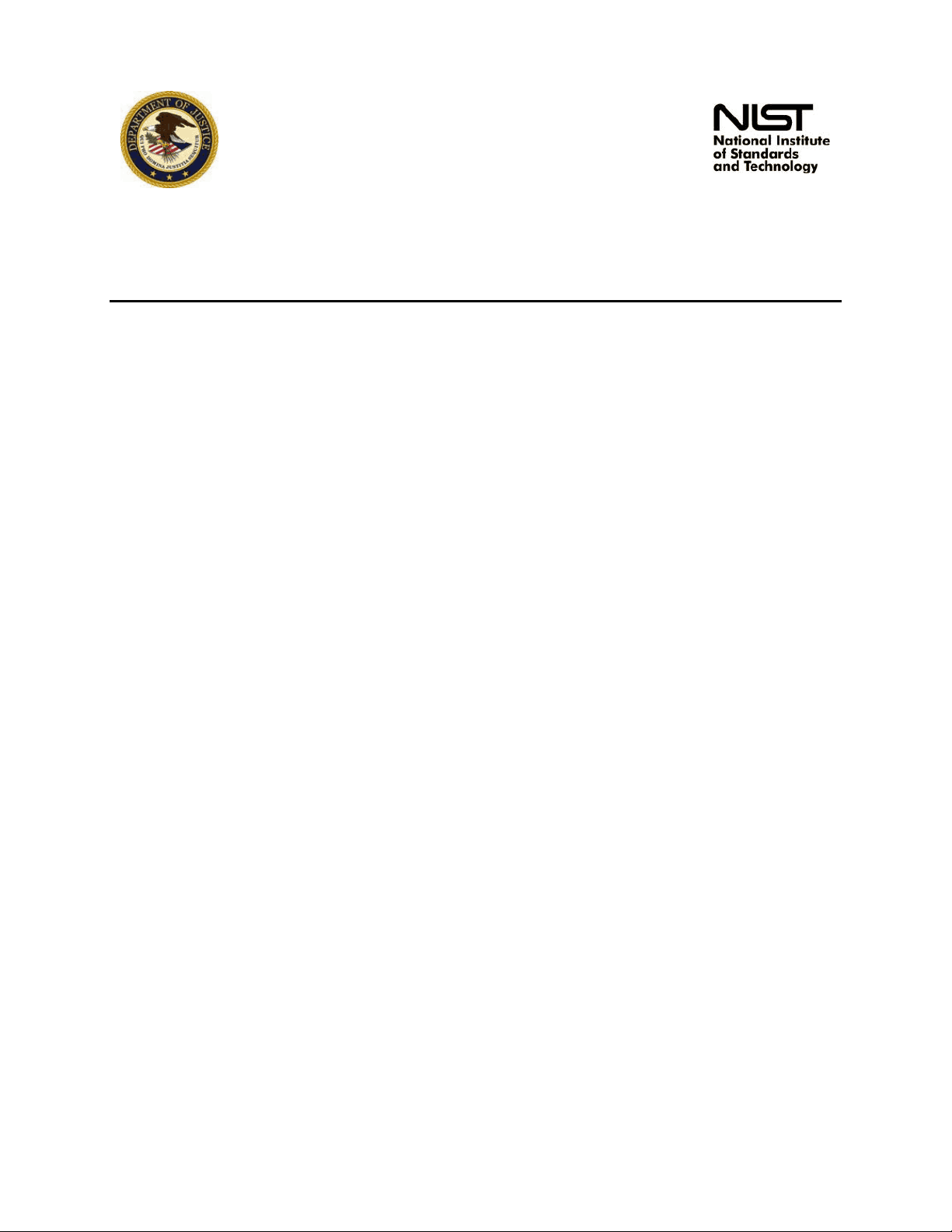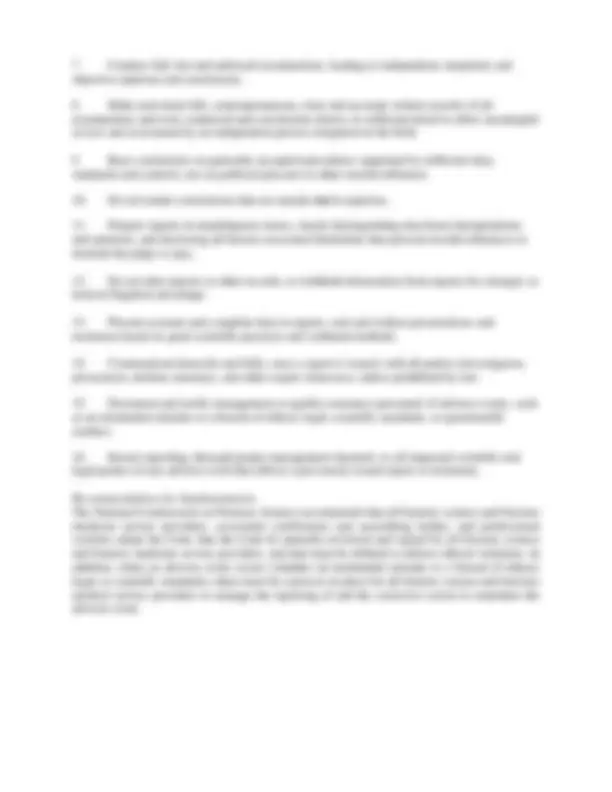



Study with the several resources on Docsity

Earn points by helping other students or get them with a premium plan


Prepare for your exams
Study with the several resources on Docsity

Earn points to download
Earn points by helping other students or get them with a premium plan
Community
Ask the community for help and clear up your study doubts
Discover the best universities in your country according to Docsity users
Free resources
Download our free guides on studying techniques, anxiety management strategies, and thesis advice from Docsity tutors
The subcommittee chose professional responsibility rather than ethics as a title because ethics is a much broader term referring to many issues beyond those ...
Typology: Slides
1 / 3

This page cannot be seen from the preview
Don't miss anything!


Type of Work Product Directive recommendation developed by the Interim Solutions Subcommittee.
Recommendation The US Attorney General should direct the forensic science and forensic medicine service providers within the Department of Justice to adopt the National Code of Ethics and Professional Responsibility for Forensic Science and Forensic Medicine Service Providers, that the Code be annually reviewed and signed by all forensic science and forensic medicine service providers, and that steps be defined to enforce violations.
Statement of the Issue The 2009 National Research Council of the National Academies report entitled Strengthening Forensic Science in the United States: A Path Forward (“NAS Report”) recommended a national code of ethics for all forensic science disciplines and encouraged professional forensic science societies to incorporate the national code into their own code of professional responsibility and code of ethics. The NAS Report also recommended exploring mechanisms to enforce serious ethical violations.
In 2010, the Education, Ethics, and Terminology Inter-Agency Working Group (EETIWG) of the National Science and Technology Council’s Subcommittee on Forensic Science developed a National Code of Ethics and Professional Responsibility for the Forensic Sciences (NCEPRFS). Further the working group recommended that all practitioners “who provide reports and expert opinion testimony with respect to forensic evidence in United States courts of law, adopt the NCEPRS.” Unfortunately, this recommendation was not acted upon and no NCEPRFS exists today.
Background The EETIWG conducted a thorough review of codes of ethics in use by forensic science organizations. While they noted the lack of a single code of ethics that covered all forensic disciplines, the working group identified four major categories addressed by every code of ethics they reviewed: 1) working within professional competence, 2) providing clear and objective testimony, 3) avoiding conflicts of interest, and 4) avoiding bias and influence, real or perceived.
The EETIWG found that the most broadly applicable code of ethics that would best serve as the NCEPRFS was the code of ethics in the ASCLD/LAB International Supplemental document. The working group found that the principles in this document were appropriate to the work conducted in the federal forensic laboratories, and ultimately proposed that the ASCLD/LAB document be adopted as the NCEPRFS. The Interim Solutions Subcommittee of the National Commission on Forensic Sciences utilized the EETIWG’s NCEPRFS as the starting point for a revised National Code of Professional Responsibility (“Code”) for all forensic science and forensic medicine service providers. The subcommittee chose professional responsibility rather than ethics as a title because ethics is a much broader term referring to many issues beyond those directly associated with forensic science and forensic medicine service providers’ professional responsibilities.
Perhaps the key element lacking from the proposed NCEPRFS is the enforcement of serious ethical violations, as recommended in the NAS Report. Oversight is critical to establishing compliance; otherwise the deterrent value for preventing violations of the code is substantially reduced.
Most practitioners in forensic science and forensic medicine are committed, hard-working, ethical professionals; however, education and guidance on professional responsibility is uneven and there is no enforceable universal code of professional responsibility. In addition, when an adverse event occurs (whether an unintended mistake or a breach of ethical, legal, or scientific standards), there must be a process in place to manage the reporting of and the corrective action to remediate the adverse event.
THE CODE
The National Code of Professional Responsibility for Forensic Science and Forensic Medicine Service Providers
The National Code of Professional Responsibility (“Code”) defines a framework for promoting integrity and respect for the scientific process and encouraging a research-based culture. To increase public confidence in the quality of forensic services, each forensic science and forensic medicine service provider must meet the requirements enumerated below: